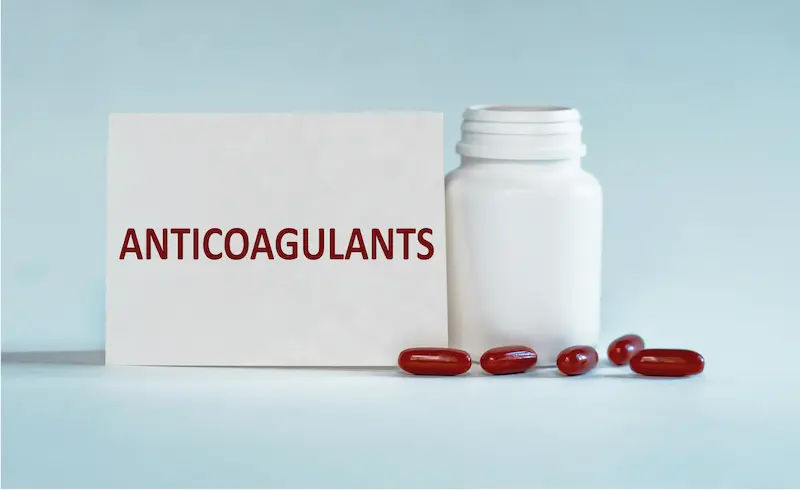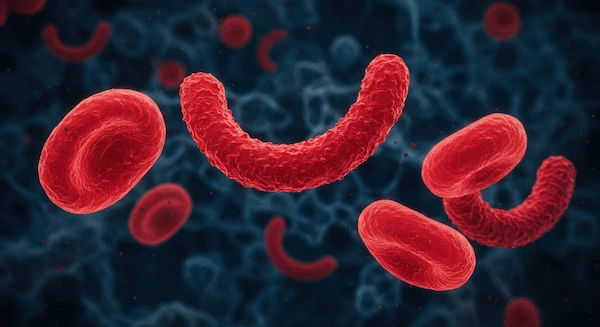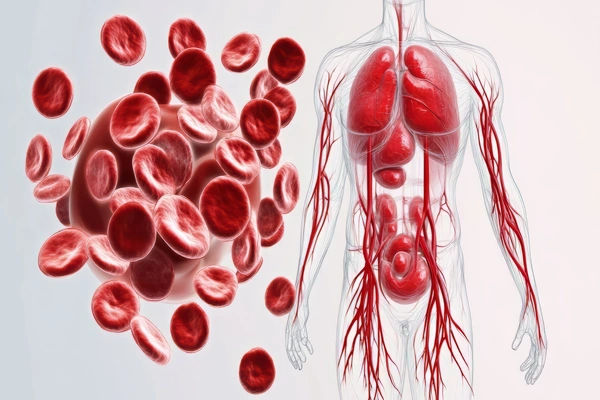- male
- 27 Years
- 23/01/2025
Is this blood report normal? I'm a 27-year-old male, and I've had a history of severe vitamin B12 and D deficiency that went untreated for a few years, though I completed the treatment. I still struggle with IBS, and I'm worried because my recent blood test showed some values out of range. My lymphocytes are at 43, RBC count is 4.5, hematocrit is 40.9, MCH is 33.7 pg, MCHC is 37.1, RDWCV is 14.8, platelets count is 169, sodium is 149, potassium is 5.1, and chloride is 107. Should I be concerned about these results, or are they something I should keep an eye on?
Answered by 1 Apollo Doctors
-The blood report shows some values slightly out of the normal range, particularly with lymphocyte count, MCH, MCHC, and electrolyte levels (sodium, chloride). These may be linked to your past vitamin deficiencies and ongoing IBS. It's advisable to discus
Dr. Mubarak Suggests...
Consult a Haematologist
Answered 04/07/2025
0
0


Ask Apollo
AI powered Health Chatbot
-
Blood Test Results Analysis:
- Lymphocytes (43%): Slightly elevated; consider infection or inflammation.
- RBC Count (4.5 million/µL): Within normal range.
- Hematocrit (40.9%): Normal.
- MCH (33.7 pg) & MCHC (37.1 g/dL): Slightly high; monitor for macrocytic anemia.
- RDW-CV (14.8%): Slightly elevated; may indicate mixed anemia types.
-
Platelets and Electrolytes:
- Platelets (169,000/µL): Normal.
- Sodium (149 mmol/L): High; consider dehydration or dietary factors.
- Potassium (5.1 mmol/L): Upper normal limit; monitor for hyperkalemia.
- Chloride (107 mmol/L): Normal.
-
Recommendations:
- Follow-up: Consult with your healthcare provider for a comprehensive review.
- Dietary Adjustments: Ensure adequate hydration and balanced diet.
- Monitor Symptoms: Watch for signs of anemia or electrolyte imbalance.
Recommended next steps
Consult a General Physician/ Internal Medicine Specialist or Consult a Haematologist
Answered 20/08/2025
0
0
More Haematology Health Queries
View allI'm a bit worried about my health lately. I recently had a throat infection and although I'm feeling better now, my haemoglobin is at 9.5. My other CBC tests seem normal. I had a baby via cesarean section back in September 2016. Could you help me understand why my ESR levels might be increasing?
ESR can be raised in a lot of conditions of inflammation. Need not worry about that. You can take a tab. Livogen once a day after food for a month and have a high protein diet. Consult a MD consultant physician in person for further evaluation and management.
Answered by 1 Apollo Doctors
I'm a bit worried about my mom's blood work results. Her RDW came back at 14.2, and I noticed the reference range is between 11.5 and 14.0. Also, her PDW is 17.2, with the reference range being 9 to 17, and her absolute basophil count is 0. Plus, she's got some high cholesterol. Do you think this is something serious? Which specialist should I talk to about these results?
md medicine
Answered by 1 Apollo Doctors
I'm really concerned about my recent blood test results that showed a high lymphocyte count of 3.65 and 42, as well as an increase in platelet size with high values for PDW, MPV, and PLCR. I'm worried about what these numbers could mean. Could there be a specific health issue causing these changes?
A high lymphocyte count (lymphocytosis) of 3.65 and 42% can be caused by various factors, including viral infections, chronic inflammation, autoimmune disorders, or blood cancers, while an increased platelet size (PDW, MPV, PLCR) may indicate a platelet disorder or a bone marrow response to inflammation or infection, so it's essential to consult a hematologist for further evaluation and diagnosis.
Answered by 1 Apollo Doctors
Disclaimer: Answers on Apollo 247 are not intended to replace your doctor advice. Always seek help of a professional doctor in case of an medical emergency or ailment.





.webp)